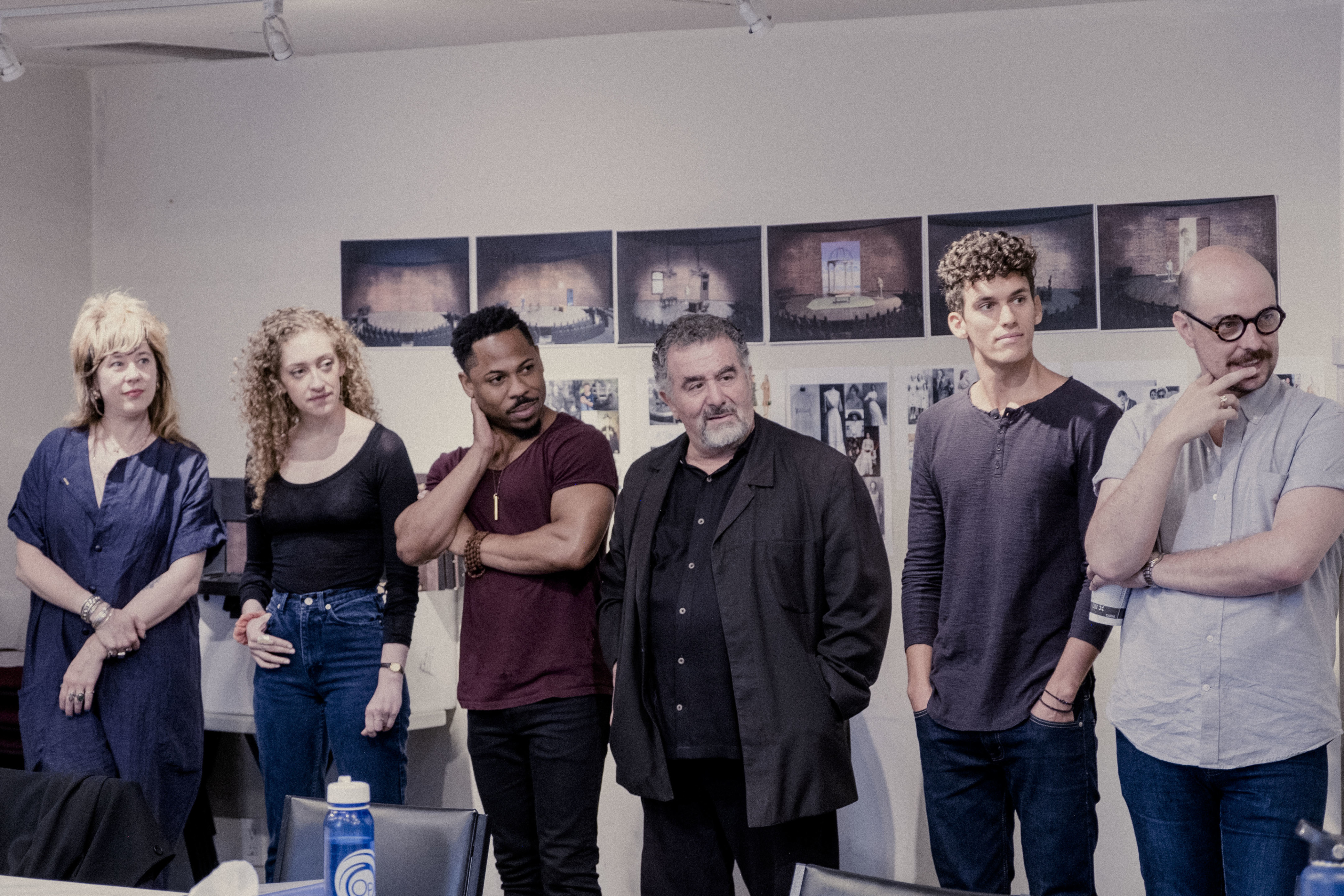Collaboration, Cast, and Poetry: What Makes a Play?
How Playwright Ethan Coen and Director Neil Pepe Brought 'A Play Is a Poem' from the Page to the Stage

From Appalachia to Hollywood, drama to comedy, A Play Is a Poem is a cross-country cross-section of American theatrical history. Consisting of five short plays of disparate settings and genres, the fundamental connection these pieces share doesn’t begin onstage. Rather, it all starts with over a decade’s worth of collaboration between playwright Ethan Coen and director Neil Pepe.
The roots of the duo’s collaboration go back to the mid-2000s, when Ethan and his brother, Joel Coen, co-wrote a radio play that was staged in New York. “I’ve always loved not only the richness of their writing but the surprise of their storytelling,” said Pepe. “I was intrigued that they were getting into something near playwriting.” Connected by mutual friends for a lunch meeting, Coen later shared some one-act plays he had been working on with Pepe, who was instantly smitten: “I read them and I loved them. They were incredibly funny and irreverent, just sort of bite-sized pieces of the brilliance of Ethan’s writing for film but applied to a theatrical form, which was exciting to me.”
Three of those one-acts eventually turned into 2008’s Almost an Evening at Atlantic Theater Company, where Pepe, who directed, is Artistic Director. Pepe and Coen quickly followed up their first collaboration with 2009’s Offices and 2011’s Happy Hour (also evenings of three plays). Now on their fourth collaboration with A Play Is a Poem, the duo have developed a comfortable rhythm together.
“Neil has a hyper-developed ear for what’s working, what’s not working, and a perfect touch with the actors, a way to show them how they can make it go better, keep the hoop rolling,” said Coen of the rehearsal process. “I’ve spent hours and hours over the years in a rehearsal room with him, and I still don’t know how he does it.”
There’s something inherently iconic about the plays in an American way. They are also in basic agreement about the format and subject of A Play Is a Poem. “This play is five different stories, five little jaunts, the scenery different in each, the setting different—Neil and I haven’t talked about what ties them together; I don’t think either of us thinks about it,” explained Coen. “The aim is to get the play to that point, where it’s become a great big joyride for actors and audience. Neil knows how to get it there, but it’s an elusive place.”
Pepe offered a hint of how he sees that journey. “There’s something inherently iconic about the plays in an American way,” said Pepe. “But I think the thing that is of course surprising and deeply funny is Ethan’s take on it. So in a certain way it’s both his take on these stories and America, but also a take on some of the forms that these stories have taken over the years.”
They both prefer to keep the work uncategorizable. “It doesn’t matter where you put the play on that spectrum, high or low, tragedy or comedy—Neil cares about that as little as I do,” said Coen. “We’ve never even talked about that, over the course of many years of working together—whether what we’re working on is a comedy or not. Or what the play is in any generic sense. It’s a play, and it’s either working or not working, either going or not going.”
The aim is to get the play to that point, where it’s become a great big joyride for actors and audience. One asset they have in getting the play going is a robust ensemble that includes many actors who have worked with both Pepe and Coen previously in both theatre and film. “Doing one-acts with a great ensemble of actors, I feel like it’s where I come from—having come of age in a theatre company with a closely knit acting ensemble,” said Pepe. “I think Ethan also comes from a background and aesthetic of great ensemble actors, and that’s how we approach these.”
But of course theatre has its limitations as well, which just might be part of the appeal. “In my mind, in theatre there’s an essential truth and simplicity to the form, which allows the words to kind of spark the imagination as opposed to having the capacity to show and realize everything, which I think you can really do very effectively in film,” said Pepe. “There’s something about poetry and language and the essential nature of a poem and the essential nature of a short play that is exciting in its economy.”
With all of that in mind, for both collaborators, at the end of the day, the crux of the piece—or any piece—is trying to coax out the essence of theatre; the thing that keeps an audience engaged with the art. Coen describes it as “the mad state that joins actors and audience when the play’s working; a mad thing that makes sense in the moment but nobody can describe it afterward.”
Or, as Pepe put it: “We do the best we can with the words that we can and we hope everybody enjoys the evening.”
